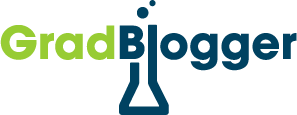Podcast: Play in new window | Download
Subscribe: Apple Podcasts | Spotify | RSS
Disclosure: Some of the links in the podcast show notes and transcripts are affiliate links (indicated with [Affiliate] in front). If you choose to make a purchase through these links GradBlogger will earn a commission from that purchase at no extra cost to you.
Dr. Anna Clemens has a PhD in chemistry, but her passion is coaching other academics who want to improve their writing. Through her website at annaclemens.com, she offers developmental editing, one-on-one coaching and workshops designed to help her clients achieve their goal of publication in a high-impact journal.
Helping scientists write better papers in less time.
“I help scientists to write better papers in less time,” she says. “Papers that are easier to read, get cited more, and help them move forward in their career. I’m trying to help academics to do all that while spending less time.”
Anna has always loved science and writing. She recalled the writing of her thesis as “the best time.” When she finished her PhD, she had to decide what to do next, so she reviewed the process and determined that what she liked the most about her academic journey was the writing.
However, she didn’t start a business right after her PhD. During the ensuing months, she did some career coaching, looked at job boards, and finally decided to become a science writer. After doing some freelance work, she did a six-month internship at a popular German science magazine that she described as “the daughter of Scientific American.”
“I got a few good articles out and to this day, I continue to sometimes write for them,” Anna says. “But then I also dabbled in other areas, which had more to do with editing. Then I did more freelance editing and for a while I worked for a small science communication company. The business then really developed from there.”
While she worked, she listened to various podcasts related to online entrepreneurship and online businesses. They helped her realize that she didn’t want to be a freelancer: what she wanted was to have her own business.
Anna started by offering editing services.
“My editing has always been very, very thorough. So I’m not an editor who just puts the comma in the right place or changes the font size or something like that. This has always been the focus of my work: to go really deep and go to the bones of the work to see, okay what’s the underlying structure? What’s the story you want to tell and how can we build up that story?”
Anna noticed that in many cases, she was recommending a total revision of the client’s paper. “So that’s when I was thinking, Okay, actually it would be good if I came in earlier in the process, not only when they have a complete draft. I can help people while they’re writing.”
She started to offer workshops and coaching services and has found that workshops, in particular, are generating a lot of interest.
Anna recommended that freelancers and service providers take time to understand what a business is, how it works, and how to identify customer needs. “I’m open to constantly adapting and changing my business and that’s also advice I would give people who would be interested in starting a business as an academic. Whatever market you’re serving, it’s always good to think about, Okay, what’s working? Then develop it from there.”
“The mindset totally shifts when you think, Okay, now I have a business, so how am I making this business work?”
She recommended that aspiring business owners do the following:
- Understand what people want.
- Develop a framework for delivering that product or service.
- Be very clear on the packaging. For example, Anna has a five-session coaching package that is clearly defined.
- Make it easy for potential clients to connect with your business. Anna has people fill in a questionnaire that tells her more about their needs and how she can help them.
- Delivering an excellent product or service. “You have to do a good job, because otherwise this isn’t going to work,” she says.
Her final piece of advice was to trust yourself and not be taken off-course by imposter syndrome and other elements of self-doubt.
“Use the resources that are there, find a nice community and yeah, you can do it,” she says.
If you want to improve the quality and impact of your academic writing, you can reach Anna Clemens at annaclemens.com or through her Twitter or LinkedIn accounts.
If you have questions or writing tips to share, please leave a comment below!




